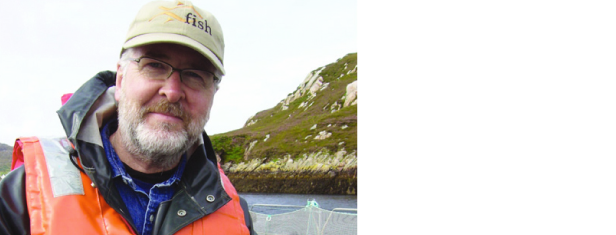San Francisco, CA
Founder & CEO of CleanFish, an importer, distributor, and brand platform promoting a network of responsible producers to eco-savvy chefs, market buyers, and consumers

Tim is the founder and CEO of CleanFish, which serves as an importer and master distributor creating market solutions to the crises of our seas. CleanFish promotes a select network of responsible producers for eco-savvy chefs, market buyers and seafood lovers alike. They’ve created a brand platform that rewards better stewardship of ocean resources with a premium brand positioning.
Q&A
How does CleanFish drive better business practices?
CleanFish supports the work of artisanal producers who are deeply committed to the health of their ecosystems and their communities by serving as a market partner for branded marketing and sales of their fish. We’ve seen many of these amazing groups win accolades and achieve significant growth by way of improving their practices, including farms that have demonstrated leadership in multi-trophic aquaculture, shrimp farm cooperatives that have shifted entirely to organic practices, and wild fisheries that have switched gear to dramatically reduce by-catch.
How does CleanFish add value to seafood producers?
Our brand has gained recognition as part of a larger Good Food Movement, and has established a reputation for authenticity in our products. We’ve been recognized with an Eco-Ocean Award by Food & Wine magazine; named as one of the Top 25 Socially Responsible Companies Changing the World by Time magazine; and received widspread validation within the industry, getting CleanFish-branded products on menus from The French Laundry, to Lil’Chihuahua Taqueria, to the new wave of fast-casual restaurants LYFE Kitchen and La Boulange bistros. Through our work, CleanFish has earned the trust of startup aquaculture producers and established fishery groups all over the world, who have sought out the CleanFish brand platform to bring their fish and seafood products into a better market.
What do you see as the biggest sustainability challenges in the seafood industry, and how does CleanFish offer a solution?
The seafood sector, as it currently exists, is structured so that it is within many players’ self-interest to keep consumer rather ignorant. A fillet of white fish on ice can be labeled as, and can pass for, pretty much whatever white fish species the current customer is looking to buy. CleanFish is committed to reconnecting consumers to artisan producers and the quality fish they deliver to the markets. Seafood lovers are increasingly seeking information on the sources, the values, and the principles of those providing a product for their homes and tables. CleanFish promotes trust through education and a greater emphasis on the magic of stories of provenance. We find authentic stories lead to deeper connections, which can help consumers see themselves as interdependent co-producers whose actions promote more responsible seafood production. By supplying fish with superb quality, along with value-based stories of responsible, enduring commitment to ocean stewardship, CleanFish seeks to foster a stronger connection to and appreciation for the food we love. This is the kind of connection needed to revitalize a sense of trust in the market. That’s what we are working for in the CleanFish movement: fish you can trust.
Describe your personal path to a career in seafood.
Food and community have always gone hand-in-hand for me. In the early '70s, I managed one of the early multi-family food-buying clubs, which were called food cooperatives and food conspiracies at the time. Throughout the '70s, I worked with alternative food and energy enterprises and conducted scientific research into how to move beyond the mainstream industrial descriptions of economic development. In the '80s and '90s, my work gravitated toward helping businesses embrace a different and more pragmatic view of economic and ecological change. From the early formation of The Natural Step U.S. to the pioneering food entities such as Odwalla: Juice for Humans, I’ve been privileged to work with individuals and groups who were passionate about renewing the emphasis on connection and responsibility within the food system. I am grateful for the corporate, economic, community, education, communications and strategic marketing opportunities that have, in aggregate, laid the foundations for my current work in the seafood sector.
What has been your motivation for pursuing your current work?
I believe that we can pull back from the inertia of the current mainstream, which has effectively broken trust with the wholesome and sacred traditions of food and community, and begin to draw our lessons from the many billions of years of R&D that Planet Ocean has patiently been developing to cultivate more integrated water, food, and energy systems that mimic natural cycles. The life force that the fishing sector pulls from the seas daily in order to meet commercial growth models committed only to Economies of Scale is diminishing our planet. We who see this must counter those growth-for-growth’s-sake models with eco-economic models of life-supporting and regenerative economies of community, and with more creative and humble commitments to work with the nature and learn to, again and again, vote with our forks.



